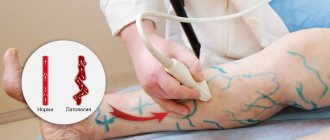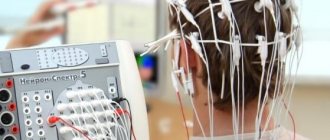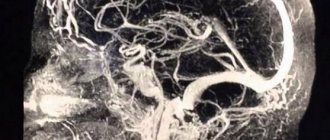Causes
The reasons that lead to this phenomenon can be different - from infections and inflammations to allergic reactions. It can also be caused by a foreign body getting into the ear. Anemia, high blood pressure, and other illnesses (including something as serious as Meniere's disease, a swelling of the inside of the ear canal) can cause a person to experience a humming, buzzing, or squeaking sound. Also, similar sensations can be caused by the use of alcohol and drugs, large doses of caffeine and certain medications. Sometimes tinnitus can occur after stress or loud noise. Excessive earwax can also cause tinnitus.
Why do ears get blocked during VSD?
Vegetative-vascular dystonia is an imbalance of human autonomics, which every now and then aggravates the condition of the blood vessels: either sharply tones them or relaxes them. Such “charging” does not have the best effect on blood vessels. They lose elasticity and the ability to perform their functions normally. With any stress or change in weather conditions, the vessels begin to behave extremely unpredictably: either they spasm, or the walls become too weakened.
As a result, normal blood circulation is disrupted, and the sensations of this are individual for each patient. Some people hear tinnitus, others hear a strange ringing. There may be a feeling that your ears are blocked. Some VSDs don’t even have to feel their pulse - they hear the heartbeat right in their head. As a rule, with VSD there is noise in both ears at once. If only one ear is affected, this may indicate inflammation of the trigeminal nerve, the cause of which does not necessarily lie in depression and dystonia.
In the vast majority of cases, a patient complaining of tinnitus is diagnosed with osteochondrosis. Why are people with VSD more likely than others to suffer from osteochondrosis of the cervical spine? It's simple. In “ordinary” people, the vessels fight to the last, ensuring normal blood flow to the brain, even if they are somewhat compressed by the vertebral discs.
The VSD patient’s blood vessels are in critical condition. Even with an ideal spine, such vessels cannot always guarantee normal blood supply, but what can we say if they are also compressed? Blood does not flow to the brain, hypoxia occurs, and as a result, the symptom of noise in the ears and head occurs.
The stress that a person experiences with VSD directly affects the state inside his head. Any nervous shock intensifies the noise, and the patient begins to become even more nervous. Often, in addition to tinnitus, a person experiences other related symptoms:
- tachycardia;
- irritation;
- hot flashes;
- nervousness;
- pressure surges;
- dizziness;
- darkness/floaters before the eyes;
There is no need to talk about how depressed and oppressed the VSD is, caught in the noise trap of his own head.
Symptoms of tinnitus
If a person experiences a buzzing, humming, ringing or squeaking sound, as well as hissing, whistling or clicking noises that have no actual sound source, then they may have a disorder called tinnitus. The strength of this noise may vary. Sounds may be felt in one ear or heard in both. Tinnitus may be accompanied by other symptoms, the most common of which are:
- Headache
- Severe weakness
- Confusion, dizziness
- Nausea and vomiting
- Increased body temperature
- Discharge from the ears and discomfort in them
- Sudden changes in blood pressure
Causes of symptoms in patients with vegetative-vascular dystonia
Vegetative-vascular dystonia is a pathology that is characterized by a violation of the innervation of the tone of arteries and veins in response to changes in the parameters of the internal or external environment.
The onset of VSD is most often observed in adolescents during the phase of active growth and hormonal imbalance. The additional influence of high concentrations of estrogen or testosterone disrupts the lability of the tone of the smooth muscle structures of the arteries.
Tinnitus with VSD is vascular in nature - increased blood flow in the internal carotid artery, which passes through the tympanic cavity, causes the appearance of symptoms.
Characteristics of ringing or stuffy ears with VSD:
- one- or two-sided;
- not constant intensity;
- rhythmic pulsation in time with the contraction of the heart;
- "hissing character"
Experts associate the frequency of complaints with the tendency of patients in this category to “self-listen” to the somatic sounds of their own body. Lability of vascular tone is often accompanied by an increase in blood pressure, which causes a feeling of heaviness or pain in the back of the head.
Constant exposure to stress factors (emotional), overheating or hypothermia contribute to the development of frequent episodes of exacerbation of symptoms.
Treatment for tinnitus
As soon as the diagnosis is made, treatment must begin immediately. Lack of proper treatment for this disease can have a serious impact on the patient's life. The constant unpleasant sounds that he experiences interfere with normal sleep and rest, prevent him from working, lead to a state of constant stress and can even cause depression.
After a medical examination, treatment for the disorder (or underlying disease) is prescribed. Usually, in order to eliminate the symptoms, it is enough to take special medications that eliminate inflammation. But sometimes surgery may be required if a specialist deems it necessary.
If this disorder is not treated, the consequences can be very tragic - tumors and infections can lead to complete hearing loss and other serious disorders. It is important that the patient does not self-medicate, but consults a specialist in connection with tinnitus.
How to remove this annoying noise?
Sometimes the patient does not understand that there are no pills “for ringing in the ears”, and this condition cannot be eliminated in half an hour. But almost every VSD student knows: if you focus on the noise, it will intensify and soon fill the whole world.
If you have made a firm decision to get rid of tinnitus, then you should schedule a visit to a therapist as soon as possible and undergo a full examination of the body (even if you are confident that the problem is only in the VSD and blood vessels). And while waiting for a visit to the doctor, you can try to alleviate the condition with the following measures:
- Relax completely, imagine that your head has suddenly become as light as a dandelion. With successful concentration on such thoughts, the noise actually softly leaves the ears.
- Click your fingers and try to listen to the sounds of clicks.
- Take a sedative.
- Drink tea with 2 drops of essential oil that normalizes blood pressure.
- Dress warmly to regulate blood flow.
- Ask a loved one to massage the collar area and cervical spine.
And, of course, you shouldn’t invent a bunch of bad diagnoses for yourself. Tumors with noise and ringing are very rarely diagnosed. Everything else is successfully treated.
Our specialists
Tarasova Svetlana Vitalievna
Expert No. 1 in the treatment of headaches and migraines. Head of the Center for the Treatment of Pain and Multiple Sclerosis.
Somnologist.
Epileptologist. Botulinum therapist. The doctor is a neurologist of the highest category. Physiotherapist. Doctor of Medical Sciences.
Experience: 23 years.Derevianko Leonid Sergeevich
Head of the Center for Diagnostics and Treatment of Sleep Disorders.
The doctor is a neurologist of the highest category. Vertebrologist. Somnologist. Epileptologist. Botulinum therapist. Physiotherapist. Experience: 23 years.
Palagin Maxim Anatolievich
The doctor is a neurologist. Somnologist. Epileptologist. Botulinum therapist. Physiotherapist. Experience: 6 years.
Zhuravleva Nadezhda Vladimirovna
Head of the center for diagnosis and treatment of myasthenia gravis.
The doctor is a neurologist of the highest category. Physiotherapist. Experience: 16 years.
Mizonov Sergey Vladimirovich
The doctor is a neurologist. Chiropractor. Osteopath. Physiotherapist. Experience: 8 years.
Bezgina Elena Vladimirovna
The doctor is a neurologist of the highest category. Botulinum therapist. Physiotherapist. Experience: 24 years.
Drozdova Lyubov Vladimirovna
The doctor is a neurologist. Vertebroneurologist. Ozone therapist. Physiotherapist. Experience: 17 years.
Dyachenko Ksenia Vasilievna
Head of the center for the treatment of dizziness and balance disorders.
The doctor is a neurologist of the highest category.
Angioneurologist. Neurorehabilitation specialist. Physiotherapist. Candidate of Medical Sciences.
Experience: 19 years.Volkova Svetlana Anatolevna
Head of the Center for Parkinsonism and Extrapyramidal Diseases.
The doctor is a neurologist of the highest category. Epileptologist. Ozone therapist. Physiotherapist. Experience: 26 years.
Prevention methods
Timely prevention will help avoid headaches and tinnitus. Doctors at the Clinical Brain Institute recommend following the following recommendations:
- avoid stress and nervous tension;
- normalize your sleep and rest schedule;
- engage in regular physical exercise, including outdoor exercise;
- follow a diet that contains vitamins and microelements in sufficient quantities, as well as a minimum of fatty and fried foods;
- give up bad habits, smoking and drinking alcohol - they affect the condition of blood vessels.
At the Clinical Brain Institute, you can undergo a complete diagnosis and treatment of headaches that are accompanied by tinnitus. Our center has modern equipment. Its use allows you to get an accurate result in the shortest possible time, and then begin treatment of the underlying disease. Doctors warn that the effectiveness of treatment largely depends on compliance with all instructions at home, taking prescribed medications and following other instructions.
Clinical Brain Institute Rating: 5/5 — 1 votes
Share article on social networks
Read also
Kinetosis/motion sickness-motion sickness
Occurs when driving in a vehicle, ship or carousel.
It begins with malaise, fatigue, yawning and pale skin, then mild dizziness occurs, followed by cold… Read more
Cerebellar ataxia
Cerebellar ataxia is a syndrome associated with damage to the cerebellum and its connections in the brain stem. Cerebellar ataxia is a frequently encountered symptom complex in the population. The reasons for the occurrence...
More details
Meniere's disease
Meniere's disease is a disease in which the leading symptoms are systemic dizziness, accompanied by hearing loss, a feeling of fullness and tinnitus. Paroxysmal dizziness,…
More details
Benign positional paroxysmal vertigo
How great it is when you feel dizzy with happiness, but unfortunately there are people who are afraid of this symptom because this symptom greatly interferes with their quality of life. Dizziness is not a diagnosis, it is a symptom...
More details
Dizziness
If a person feels that “the ground is starting to disappear from under his feet” or there is a feeling of instability, unsteadiness, or lack of coordination, they say that dizziness or vertigo occurs. There are central...
More details
Diagnostic methods
Timely diagnosis is the main condition for successful treatment of diseases that are accompanied by headaches and tinnitus. After the examination, the doctor will prescribe additional examinations that will determine the main cause of the deterioration in health. So, the following diagnostic methods may be needed:
- measuring blood pressure, including monitoring this indicator throughout the day;
- blood tests - general and biochemical, as well as determination of glucose and cholesterol levels;
- angiography of cerebral vessels - allows you to determine the intensity of blood circulation, the presence of spasms and blockage of the arteries;
- computer or magnetic resonance imaging is the main method for detecting tumors, aneurysms and other pathologies that require surgical treatment, as well as diseases of the cervical spine.
The Clinical Brain Institute houses precise, modern equipment for diagnosing a number of diseases. Experienced doctors will prescribe only the necessary examinations, which will allow you to quickly make an accurate diagnosis and begin treatment. It is important that it is impossible to obtain all the necessary information about the stage of the disease and its causes either at home or on the basis of a simple examination.









